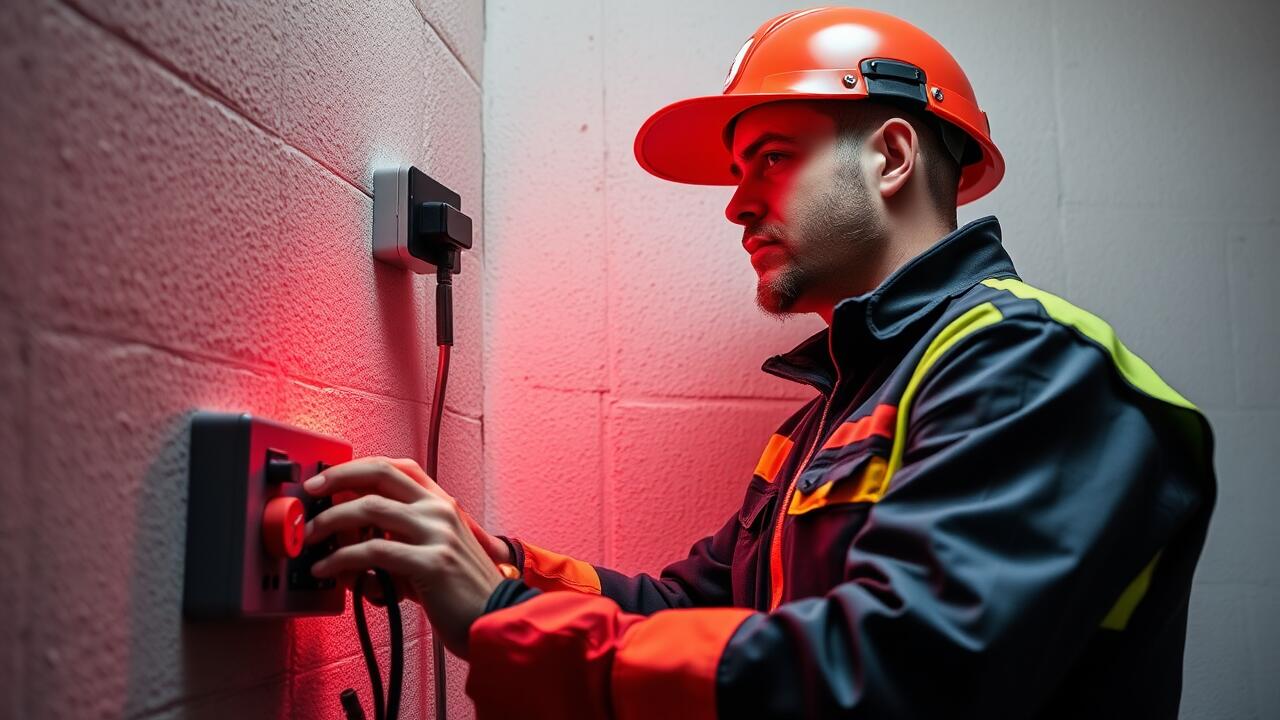
Differences Between Circuit Breaker Types
Circuit breakers are essential components in any electrical system, with various types designed to address specific safety needs. Standard breakers serve as the most common type, protecting circuits from overloads and short circuits by automatically shutting off when excessive current flows. Ground Fault Circuit Interrupters (GFCI) breakers provide added protection by detecting ground fault conditions, such as when water exposure occurs. Arc Fault Circuit Interrupters (AFCI) break the circuit when they sense dangerous arcs, which can lead to electrical fires. Each breaker type plays a unique role, highlighting the importance of selecting the right one for a given application.
In consideration of electrical safety, it is vital to recognize when to engage a professional service like Emergency Electrician Alief, Houston. Understanding the differences among breaker types can significantly influence decision-making regarding installation and replacement. Homeowners should familiarize themselves with the specific needs of their residence to ensure optimal protection. Wiring jobs that remain unchecked could lead to catastrophic failures, making knowledge of these distinctions crucial for maintaining a secure living environment.
Exploring Standard vs. GFCI and AFCI Breakers
Standard circuit breakers serve as the first line of defense against electrical overloads and short circuits. They disconnect the electrical supply when they detect excessive current flow, preventing potential hazards. Commonly found in residential settings, these breakers are essential for protecting appliances and wiring from damage. They can be easily reset after tripping, making them user-friendly for homeowners.
GFCI (Ground Fault Circuit Interrupter) and AFCI (Arc Fault Circuit Interrupter) breakers provide specialized protection. GFCI breakers are designed to prevent electrocution by detecting ground faults, making them ideal for areas with water exposure like kitchens and bathrooms. AFCI breakers protect against electrical fires caused by arcing faults, detecting irregular electrical activity that standard breakers might miss. For any issues related to these breakers, it is wise to consult an expert such as an Emergency Electrician Alief, Houston to ensure safe and effective solutions.
When to Replace a Circuit Breaker
Recognizing the signs that indicate a circuit breaker may need to be replaced is essential for home safety. Frequent tripping can be a primary warning sign. When breakers trip often, it may suggest an overloaded circuit. Another indication involves an unusual burning smell or discoloration around the breaker box. In such cases, immediate attention is necessary to prevent potential hazards.
A circuit breaker may also show physical signs of wear, such as strange noises or visible damage. If it feels warm to the touch or has a loose connection, replacement becomes critical. Homeowners should not hesitate to consult with professionals, such as an Emergency Electrician Alief, Houston, for a thorough inspection. Ensuring that circuit breakers function properly safeguards against electrical problems and maintains overall safety in the home.
Signs Indicating Replacement is Necessary
A circuit breaker that frequently trips can be a major sign that it needs replacement. This cycling may occur due to overloaded circuits or a malfunctioning breaker itself. If the issue persists even after reducing the number of devices plugged into the circuit, it may indicate an internal fault. Such problems can lead to consistent interruptions in power, impacting daily routines and potentially causing inconvenience.
Visual signs of wear or damage on a circuit breaker are also indicators that replacement is necessary. Burn marks, a charred appearance, or a breaker that feels excessively hot to the touch suggests serious issues that shouldn't be ignored. In these cases, contacting a professional such as an Emergency Electrician Alief, Houston, can help assess the situation and ensure safety while determining the next steps. Regular maintenance and inspections can prevent small problems from escalating into more significant hazards.
The Role of Circuit Breakers in Home Safety
Circuit breakers serve a vital role in ensuring home safety by interrupting electrical currents when a fault is detected. This feature significantly reduces the risk of electrical fires and prevents damage to appliances and wiring. By breaking the circuit, these devices mitigate the effects of overloads and short circuits, safeguarding both occupants and property. Regular inspections and timely maintenance are essential for ensuring that circuit breakers function properly and continue to offer protection against potential hazards.
In instances of malfunction or outdated technology, the effectiveness of circuit breakers can diminish, leading to increased safety risks. Homeowners should remain vigilant for signs of wear or failure, as these can indicate the need for replacement. Consulting with professionals, such as an Emergency Electrician Alief, Houston, can provide insight into necessary upgrades or repairs. Understanding the importance of circuit breakers in home safety empowers residents to take proactive measures for their electrical systems.
Preventing Electrical Hazards with Proper Functioning
A properly functioning circuit breaker plays a crucial role in maintaining electrical safety within a home. It acts as a first line of defense against potential hazards such as overloads and short circuits. By interrupting the flow of electricity when it detects an anomaly, the breaker helps prevent dangerous conditions that could lead to fires or equipment damage. Regular inspections and timely replacements can ensure that the breakers operate effectively.
In instances where circuit breakers frequently trip or fail to reset, seeking assistance from a professional is essential. Homeowners in need of immediate support should consider contacting an Emergency Electrician Alief, Houston, to assess the issue. Their expertise can diagnose underlying problems and ensure that electrical systems are not just functional but safe for everyday use. Taking these precautions minimizes risks and keeps families secure.
FAQS
What are the different types of circuit breakers?
The main types of circuit breakers include standard circuit breakers, Ground Fault Circuit Interrupters (GFCI), and Arc Fault Circuit Interrupters (AFCI). Each type serves specific functions to enhance electrical safety.
How can I tell if my circuit breaker needs to be replaced?
Signs indicating that a circuit breaker may need replacement include frequent tripping, visible damage, unusual noises, or if it feels warm to the touch. If you experience any of these issues, it's best to consult a professional electrician.
What is the role of circuit breakers in home safety?
Circuit breakers protect your home from electrical hazards by interrupting the flow of electricity in case of overloads, short circuits, or ground faults, thereby preventing potential fires and electrical shocks.
Are GFCI breakers necessary in all areas of my home?
GFCI breakers are typically required in areas where water and electricity may come in contact, such as bathrooms, kitchens, and outdoor spaces. It's important to follow local building codes to determine their necessity in your home.
Can I replace a circuit breaker myself?
While some homeowners may choose to replace a circuit breaker themselves, it is generally recommended to hire a licensed electrician due to the risks involved with electrical work, including potential hazards and ensuring compliance with local codes.




